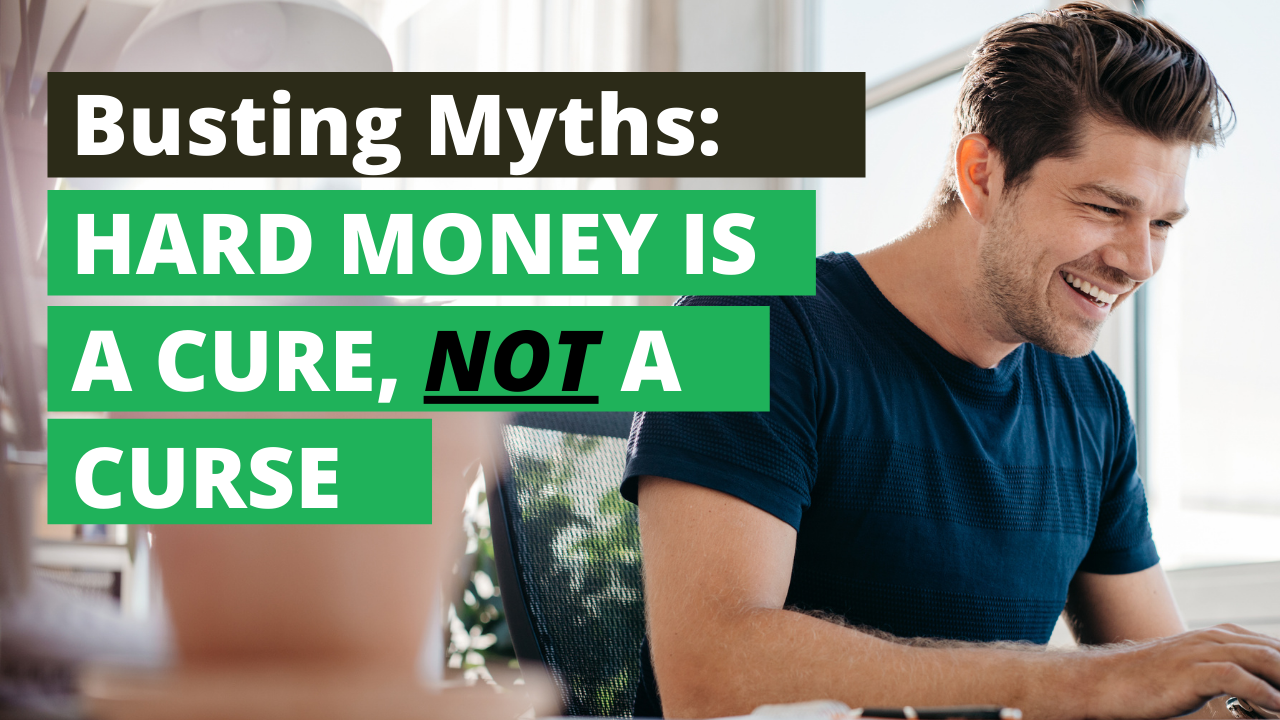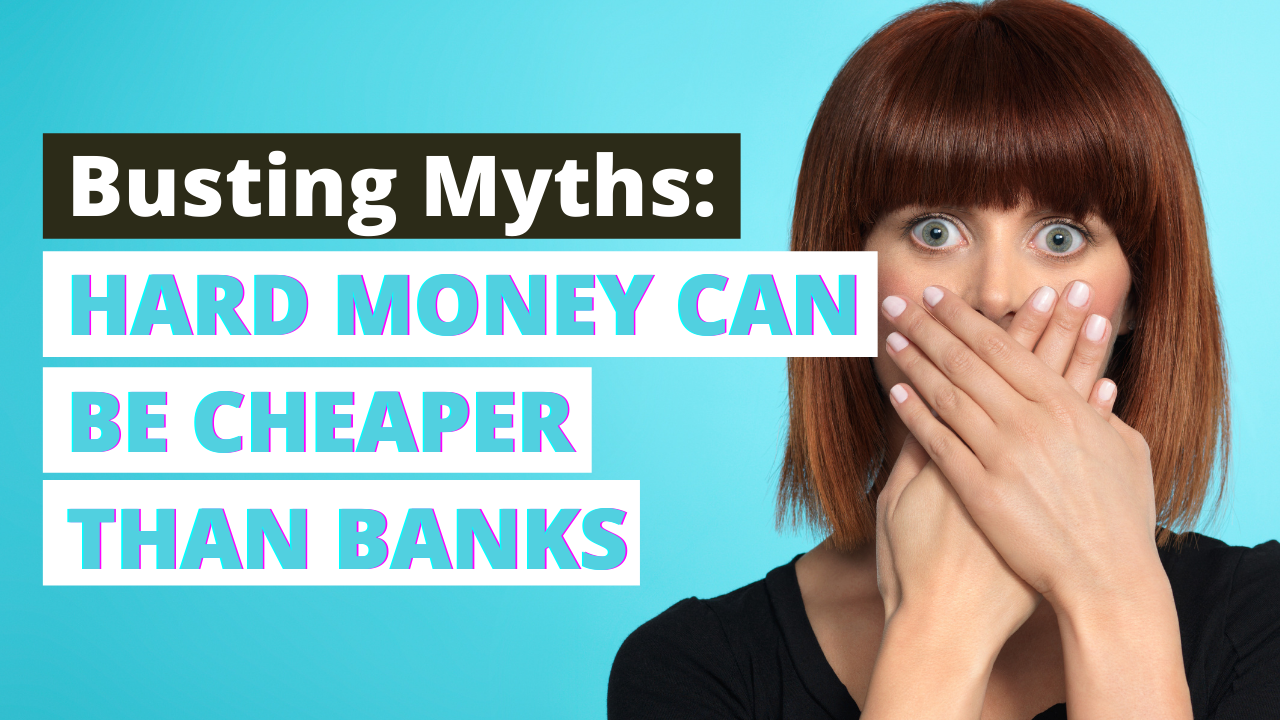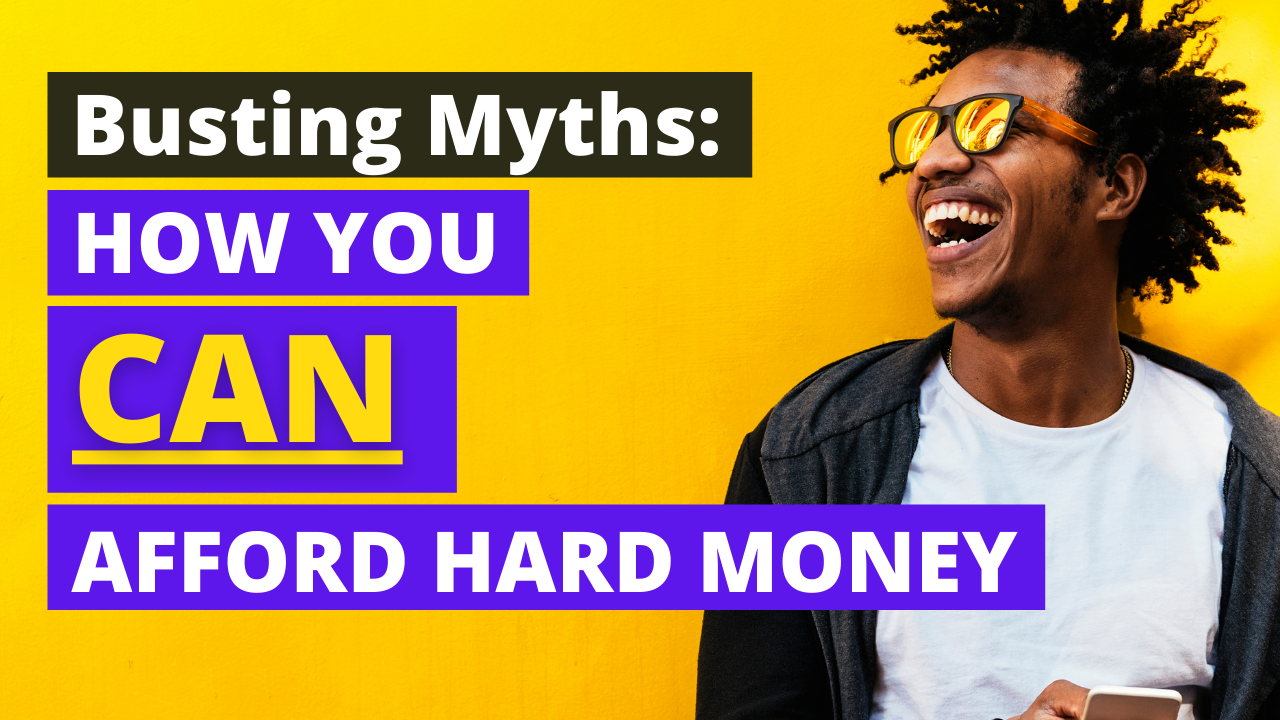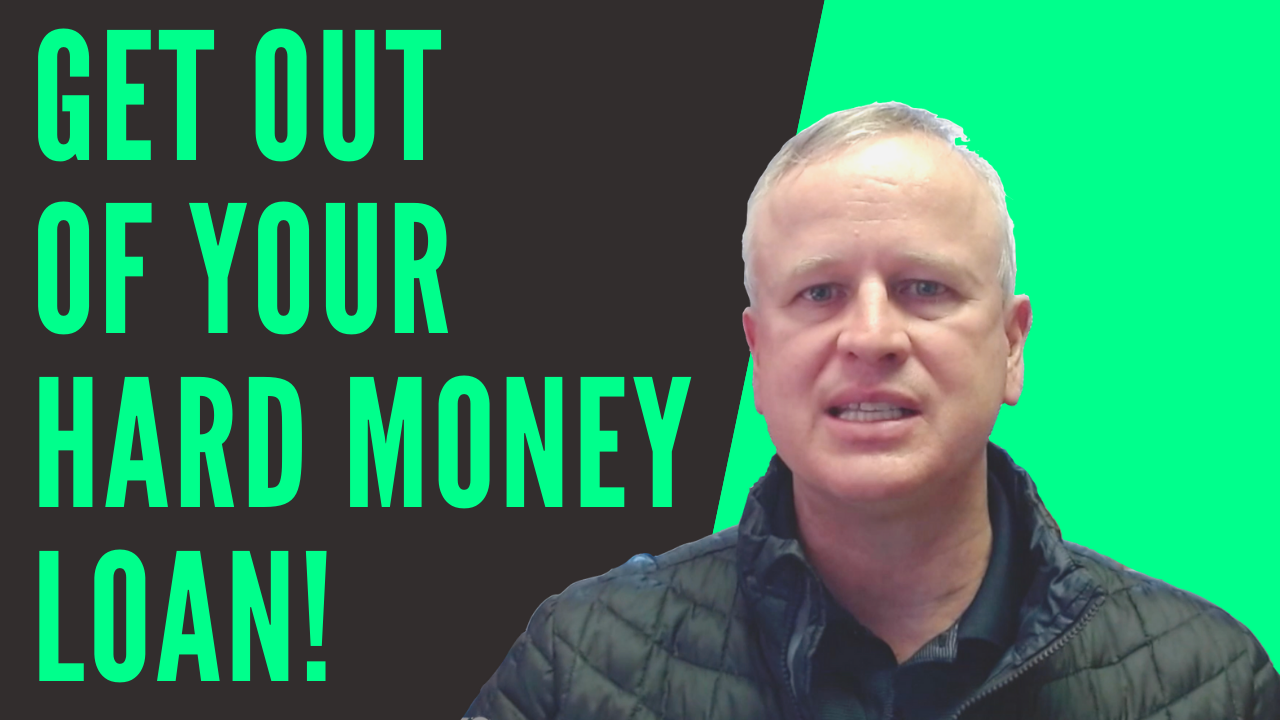Busting Myths: How Hard Money Can Be Cheaper Than Banks
Let’s keep busting hard money myths and talk about how hard money can be cheaper than banks.
But, first, in case you missed our other hard money myth busting videos, check them out on our YouTube channel!
So far, we’ve busted common myths like “Hard money is too expensive,” and “Hard money is a trap.”
Now, let’s look at another common misconception about hard money:
“Bank lines are cheaper than hard money.”
Okay, on the surface, bank loans are cheaper. Yes, that part is technically true.
However, when you scratch below the surface, you’ll discover hard money can be cheaper. All because of one important factor that doesn’t get calculated into the equation at the start of a loan:
Timing.
Think about how long it can take to close a bank loan. You might get lucky and close within 30 days, but it often takes longer. Sometimes MUCH longer.
Hard money, on the other hand, moves much, much faster. You can usually close within two weeks, but it can be even faster. Some lenders can close in just a few days. When you close faster, you can get to work faster…which means you can complete your project faster. Faster projects mean more money in your pocket.
Another timing issue real estate investors fail to consider: The amount of time it takes to fund escrow.
AKA, your rehab.
If it takes longer to access those funds, then it’ll take longer to pay your contractor. And if your contractor isn’t paid quickly enough, they might move on to another value-add property project.
Not only does it take banks longer to approve escrow funds, but they have stricter guidelines. Let’s look at an example:
You want to withdraw $10,000 from your escrow account to pay your electrician. But when you get the invoice from your electrician, you realize you only needed $8,000.
However, your plumber suddenly also needs to be paid $2,000.
Unfortunately, the bank won’t care about your plumber. They’ll send you only what you need to pay your electrician since that’s what you originally asked for.
You’ll have to waste precious time sending in another request for the $2,000. Within that time, your plumber might take off and find a different project. They can’t wait around for you to pay them so they can complete their work.
That means you have to search for a new plumber…which means you waste time.
And time is money!
Hard money lenders respect that.
Most of them focus on moving fast, being flexible, and working with you to get you through your project as quickly as possible so you can tackle your next real estate deal.
So, there you have it. In the long the run, hard money can be cheaper than banks.
Again, it all comes down to timing. And, again, time is money in real estate investing.
Stay tuned for our next video where we talk about the biggest and most misleading myth of all:
Hard money is a curse.
Ready to chat about your hard money and other lending options? Great! Our team is excited to set you on a path that makes you the kind of money you need…to live the life you want.
Happy investing!










